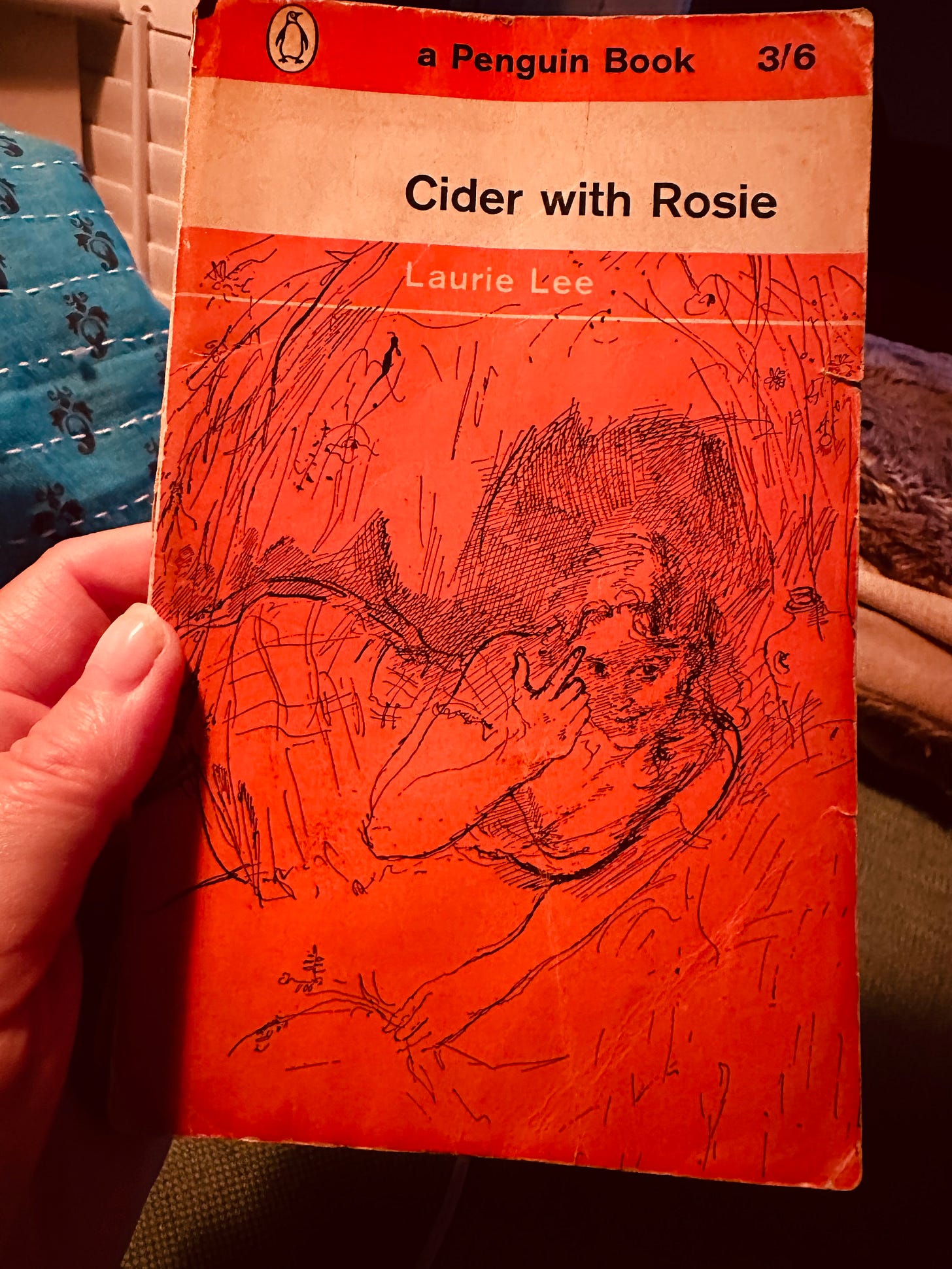(If you’d like to know more about the The Penguin Project, please see Penguin Project 1 where all is explained)
Cider With Rosie is one of those books you’re absolutely convinced you were forced to read by a teacher during a warm June when your mind was elsewhere. It’s a book that has seeped into the pores via osmosis, the sort of book whose title raises an eyebrow and fills you with misty memories of long sunny days, sharing sharp sherbert sweets, sitting on neighbour’s walls for hours on end and constantly wiping chalk off your fingers.
So imagine my surprise when I realised, within ten pages, that I’ve never actually read it.
It’s a delight of a book, a cosy, bucolic memoir, written by Laurie Lee in 1959, the first in a trilogy. It gently meanders through Lee’s childhood in the village of Slad in Gloucestershire (He moved back there as an adult and is buried in the village churchyard) and is set just after the First World War when everything is broken but everyone’s making the best of it.
The chapter “Grannies in the Wainscot” about the forever warring Granny Wallon and Granny Trill, who hate each other’s guts is, I think, one of the funniest chapters of any book I’ve read and their mutual hatred is so deftly handled I wish I’d written it. Similarly, the descriptions of the outrageous Uncle Ray and his drunken escapades are wonderful.
Laurie Lee was an interesting character - he once walked across much of Spain paying his way by playing his violin and, at the outbreak of the Spanish Civil War, finding himself marooned, he was saved by a British destroyer in Gibraltar. He had a girlfriend stolen off him by Lucien Freud and he spent the Second World War making documentaries. Cider With Rosie took Lee two years to write but after its success he was able to become a full time writer.
It was adapted for television three times - in 1971, 1998 and 2015. It was also turned into a play featuring… (you are not going to believe this - please see The Penguin Project Part 1) … Greta Scaachi.



I’m another who was definitely forced to read it at school (1st yr/2nd yr at big school mebbe?) but can’t remember any of it tbh. I do remember having to tortuosly analyse passages from it as part of English classes and probably should give it another go.
Never read it but always felt like I should. I was a librarian for ten years and saw the book go out many, many times. I was in bookselling and publishing for another fifteen years and it was still popping up all over the place. Perhaps it’s time… 😏